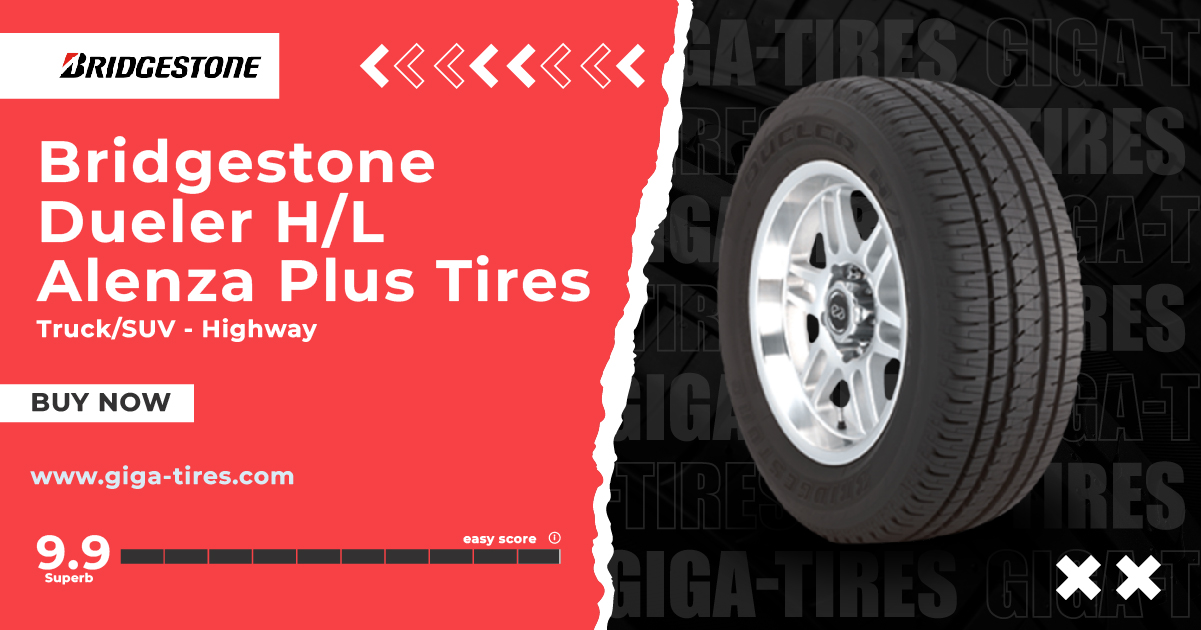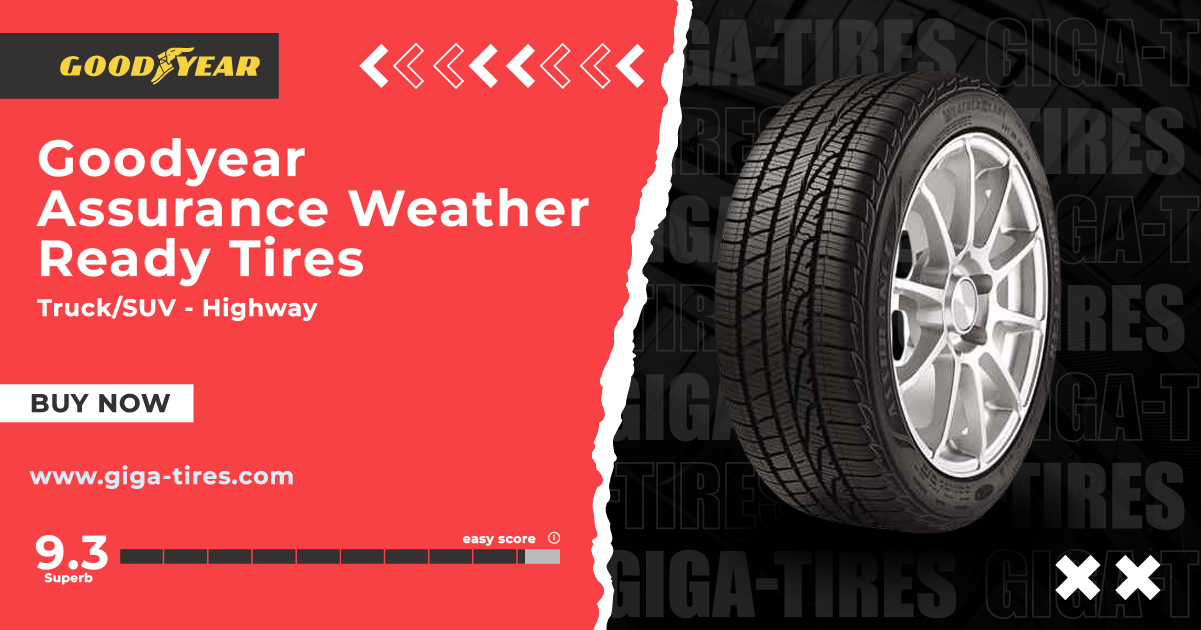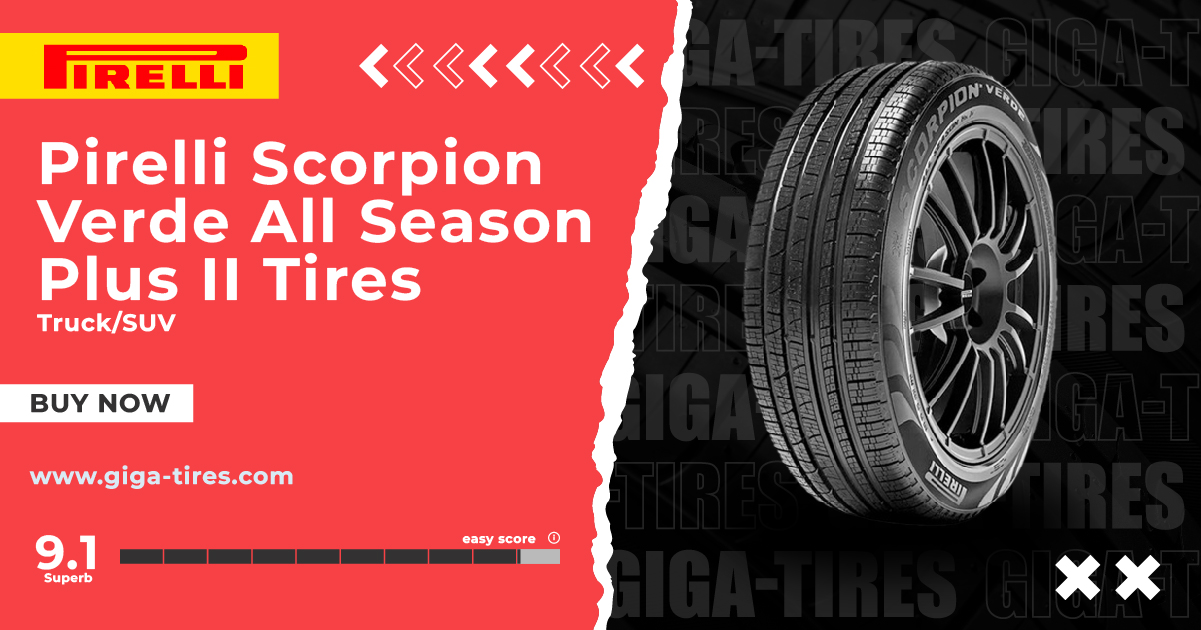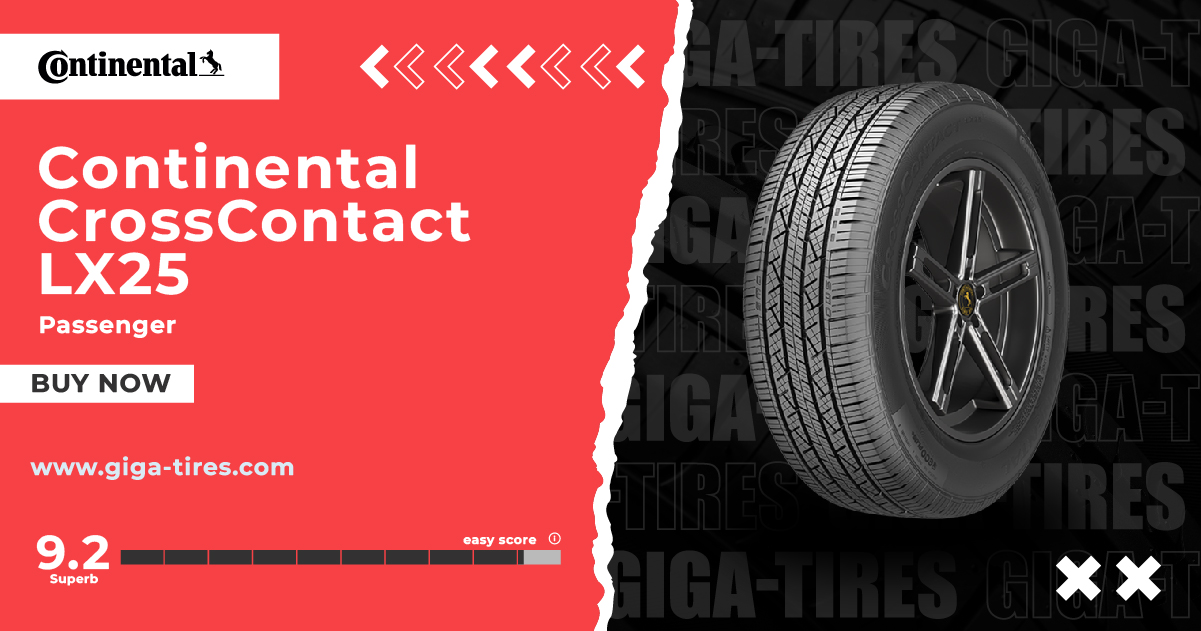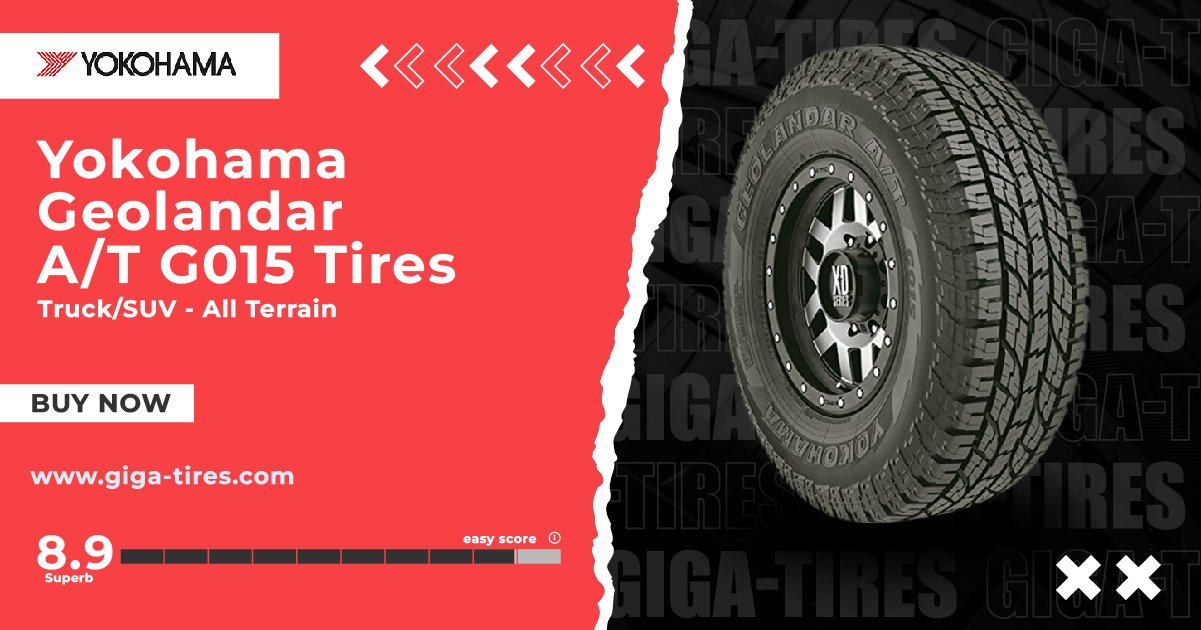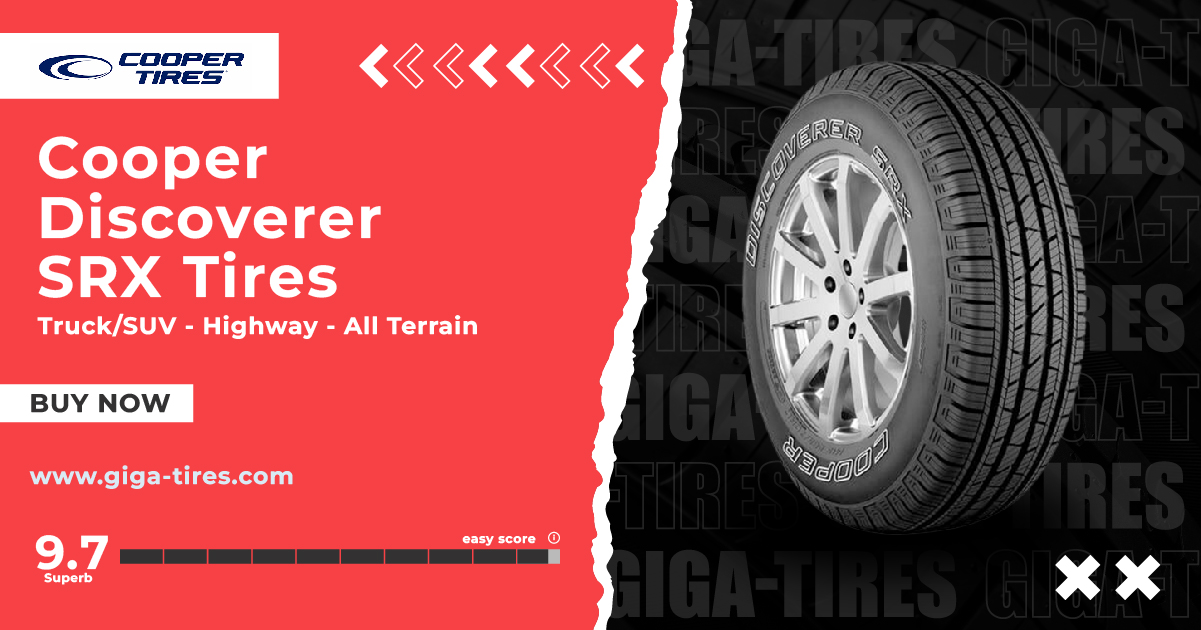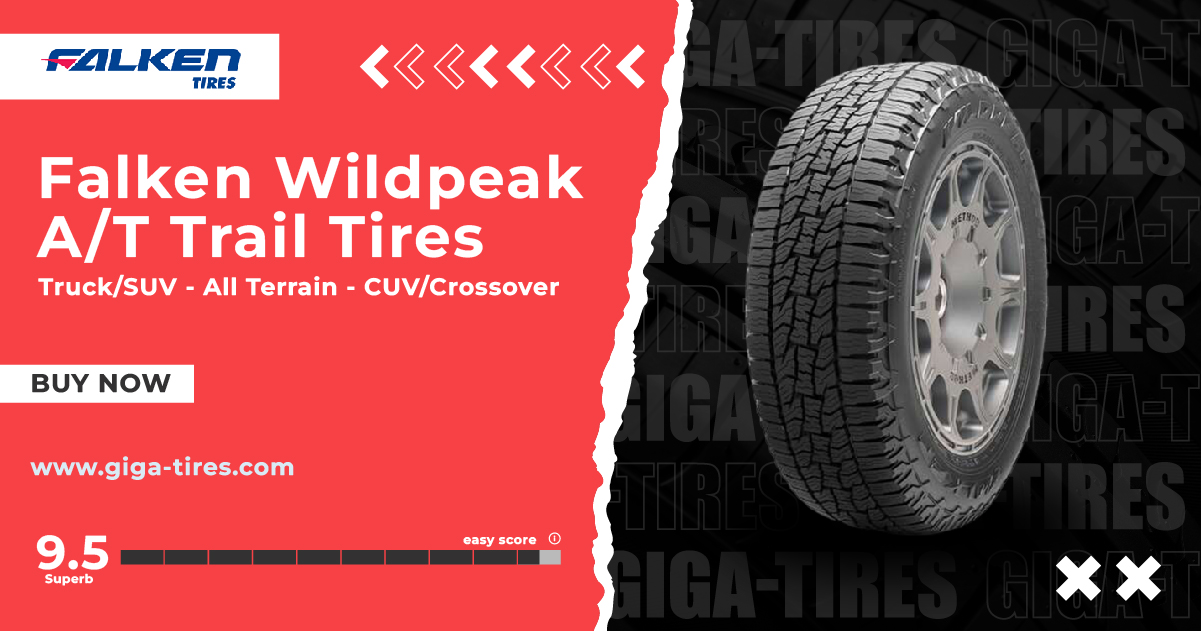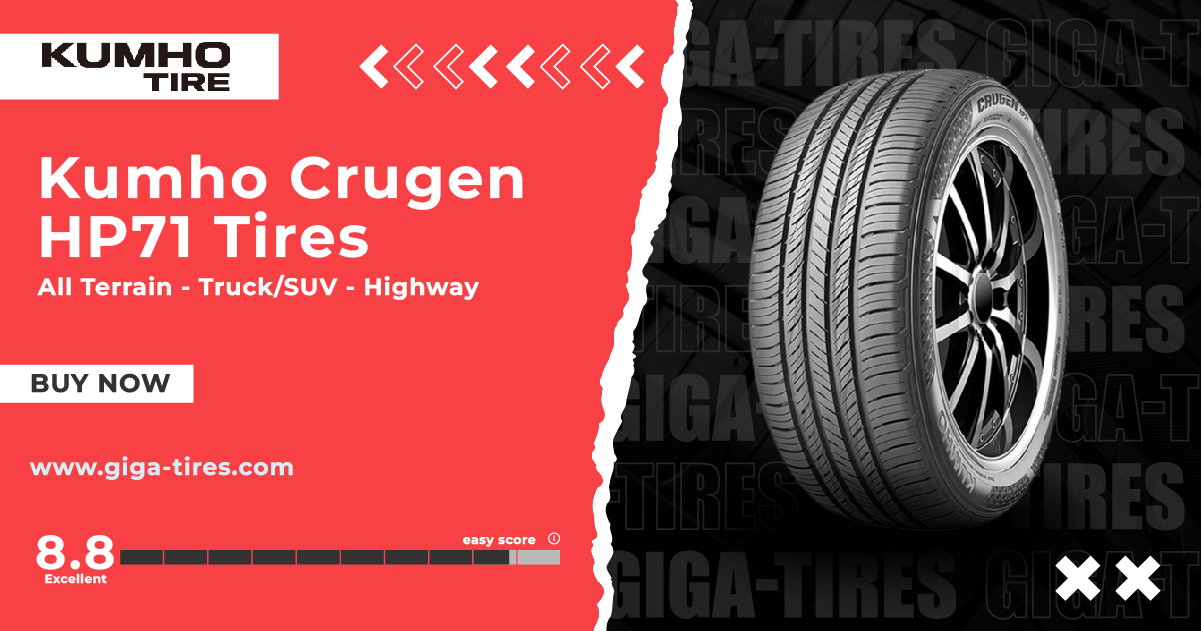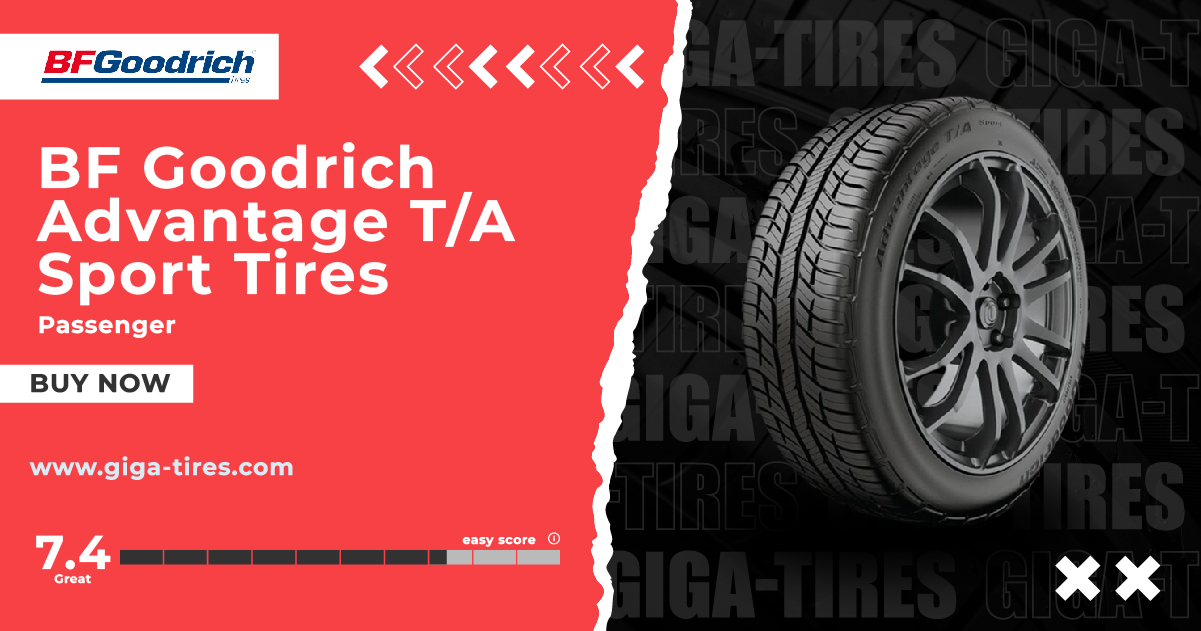Last Updated on 5 months
Introducing The Best All-Season SUV Tires Market in 2025
If you have not noticed, more brands are developing all-weather Sport Utility Vehicle (SUV) tires in 2025. That means there’s been a significant technological change in this area. Since the right all-weather SUV tires also promote safety and environmental protection, it’s only standard for more consumers to ask for them.
In this extensive guide, we aim to explore the present situation in the all-weather SUV tire market and emphasize the need to select the best tires for your vehicle. Ready for this? Let’s begin with an overview of all-weather SUV tires.
Overview of the Best All-Season SUV Tires Market in 2025
An all-season SUV tire is designed to perform well in various weather conditions, including dry, wet, and light snowy roads. These tires offer a balanced combination of grip, handling, and comfort throughout the year. They typically feature tread patterns and rubber compounds that enhance traction and durability, making them suitable for most climates without changing tires seasonally.
The all-season SUV tire market in 2025 will be characterized by several key trends and innovations that cater to a wide range of consumer needs and preferences.
The continuous pursuit of a balance between performance, durability, and cost-efficiency drives these developments. Here are the trends essential for making an informed decision when selecting your next set of tires:
- Technological Advancements: Manufacturers have introduced cutting-edge materials and tread designs to enhance tire longevity, fuel efficiency, and performance across diverse driving conditions. Innovations such as silica-enhanced rubber compounds and adaptive tread patterns offer improved grip on wet and dry surfaces while reducing rolling resistance, leading to better gas mileage.
- Sustainability Focus: There is a growing emphasis on eco-friendly production processes and materials. Many tire manufacturers utilize renewable resources and recycled materials to minimize environmental impact without compromising tire quality or performance.
- Increased Demand for Versatility: Today’s SUV drivers expect tires that can handle various terrain and weather conditions without sacrificing comfort or safety. This has led to the development of all-season tires that offer a commendable balance between off-road capability and on-road manners, including noise reduction and ride comfort.
- Safety Innovations: With advancements in tire technology, safety features, such as enhanced wet grip and reduced stopping distances, have significantly improved. These features are crucial for preventing accidents in adverse weather conditions.
- Market Diversity: The all-season SUV tire market in 2025 is more diverse than ever, with options available for every budget, driving style, and performance requirement. From premium brands offering the latest in tire technology to more affordable options that still provide reliable performance, there is something for every SUV owner.
How to Choose the Best All-Season SUV Tires
Selecting the perfect all-season tires for your Sport Utility Vehicle (SUV) involves a nuanced understanding of tire specifications, an evaluation of your driving conditions, and knowing how tire technology impacts performance and durability. Here are the critical areas to help you make an informed choice that aligns with your driving needs and preferences.
Understanding Tire Specifications and Ratings
When navigating the vast selection of all-season SUV tires, it’s crucial to start with the basics: tire specifications and ratings. These details are not just numbers and letters stamped on the tire’s sidewall but critical indicators of a tire’s capability and suitability for your vehicle.
- Tire Size: A tire’s size is indicated by a series of numbers and letters, such as 255/55R18, where 255 is the tire’s width in millimeters, 55 is the aspect ratio (height to width), R indicates radial construction, and 18 is the diameter of the wheel in inches. Choosing the recommended tire size for your SUV is vital to ensure proper fit and performance.
- Load Index and Speed Rating: The load index and speed rating are critical for safety and performance. The load index shows the maximum weight a tire can support, while the speed rating indicates the top speed at which the tire can safely operate. These ratings ensure that the tires can handle the weight of your SUV and the speeds at which you intend to travel.
- Treadwear, Traction, and Temperature Ratings: These ratings provide insights into a tire’s expected lifespan (treadwear), its ability to stop on wet surfaces (traction), and its heat resistance (temperature). Higher treadwear ratings suggest a longer-lasting tire, while superior traction and temperature ratings indicate better performance in adverse conditions.
Evaluating Your Driving Needs and Conditions
Your driving needs and the conditions you commonly encounter play a pivotal role in selecting the right all-season tires.
- Driving Environment: Consider whether your typical driving environment is urban, rural, or a mix of both. City driving may require tires with better handling and braking performance due to frequent stops, whereas rural or varied terrains might demand tires with higher durability and off-road capabilities.
- Weather Conditions: All-season tires are designed to perform in various conditions, but not all are created equal. Assess the most common weather conditions you face, such as rain, light snow, or mostly dry conditions. Look for tires with features tailored to these conditions, such as enhanced wet grip or mild snow performance.
- Driving Style: Your driving style—whether you prefer a smooth, quiet ride or a more spirited, performance-oriented drive—will influence your tire choice. Tires that cater to different preferences are available, from comfort-focused designs to those that prioritize responsive handling and control.
Importance of Choosing the Best All-Season SUV Tires
Selecting the appropriate all-season tires for your SUV is not just a matter of personal preference or budget but a critical decision that impacts your vehicle’s performance, safety, and efficiency.
- Safety: The correct set of tires can dramatically improve your vehicle’s handling and stability in various driving conditions, reducing the risk of accidents. Especially in sudden weather changes, having all-season tires that adapt to wet, dry, and mildly snowy conditions can be a lifesaver.
- Performance: Tires are the only point of contact between your SUV and the road. High-quality all-season tires ensure optimal traction and handling, allowing for a smoother, more controlled driving experience.
- Economic Efficiency: Investing in the right tires can lead to significant savings. Quality all-season tires often feature lower rolling resistance, which improves fuel efficiency. Moreover, durable tires with longer tread life reduce the need for frequent replacements.
- Comfort: A good set of all-season tires can enhance ride comfort by minimizing road noise and absorbing shocks more effectively. This is particularly important for SUVs, often used for longer journeys.
Top 10 Best All-Season SUV Tires for 2025
Now that you know the tires and why you should use them for your vehicle, it is time to find the perfect one for you. Lucky you; the quest for the ideal all-season tire for your SUV ends here. 2025 has introduced various options that stand out for their durability, performance, and innovation. Whether navigating city streets, tackling rough terrain, or driving in varied weather conditions, this list of the top 10 all-season SUV tires will guide you toward making the best choice for your vehicle.
Michelin Defender LTX M/S: For Unmatched Traction and Longevity
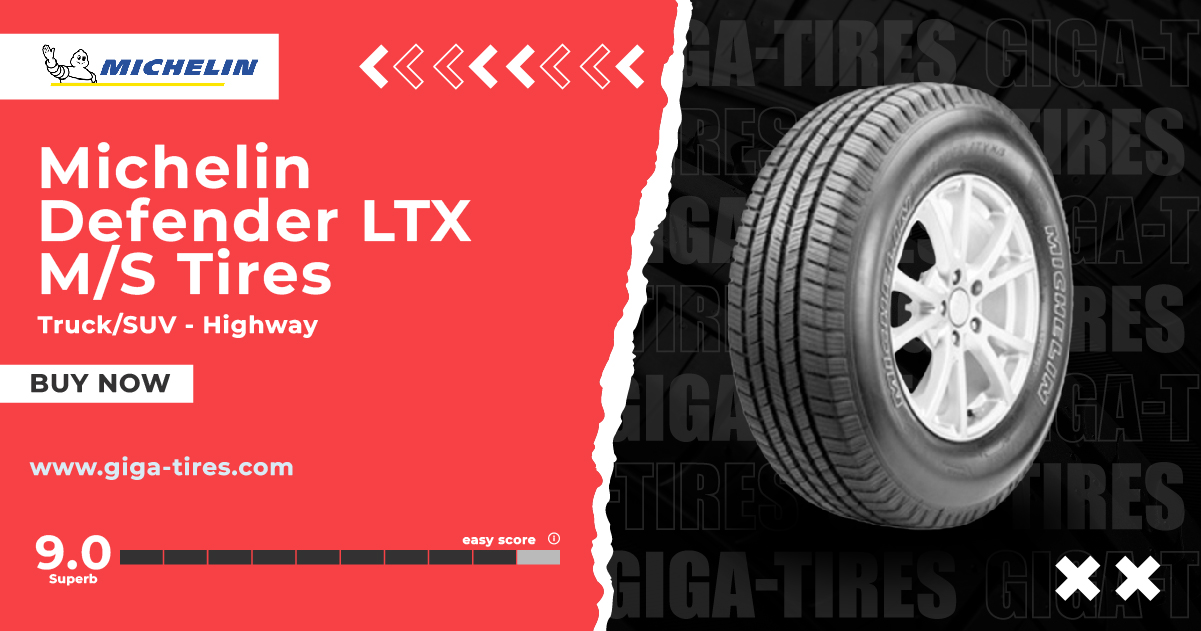
Key Features
- The Michelin Defender LTX M/S is renowned for its Evertread compound, which extends the tire’s life under severe conditions.
- Thanks to its advanced tread pattern and siping technology, it offers excellent wet and dry traction.
- The tire is designed for fuel efficiency without sacrificing performance.
Pros and Cons
- Pros: Exceptional durability, improved fuel economy, and excellent traction in various conditions.
- Cons: Premium pricing may only fit some budgets.
Bridgestone Dueler H/L Alenza Plus: The Choice for Comfort and Efficiency
Key Features
- Features an optimized tread pattern for reduced road noise and a comfortable ride.
- It is engineered with a long-wearing tread compound for extended tread life.
- Incorporates Bridgestone’s Eco-Product design, prioritizing fuel efficiency and reduced environmental impact.
Pros and Cons
- Pros: Superior ride comfort, long tread life, and environmentally friendly.
- Cons: Performance in deep snow could be improved.
Goodyear Assurance WeatherReady: All-Weather Reliability
Key Features
- Goodyear’s Weather Reactive Technology™ adapts to weather changes for confident handling.
- Tread grooves and biting edges offer superior traction in wet and snowy conditions.
- It was built to carry the Severe Snow Certification, indicating top snow performance.
Pros and Cons
- Pros: Excellent all-weather traction, severe snow certification, and adaptive performance.
- Cons: Higher price points and tread life could vary with heavy use.
Pirelli Scorpion Verde All Season Plus II: Italian Engineering for Performance
Key Features
- Improved tread pattern and silica compound enhance wet braking and handling.
- They are designed to reduce rolling resistance, improve fuel efficiency, and lower CO2 emissions.
- They are engineered for comfort and noise reduction, providing a quiet and smooth ride.
Pros and Cons
- Pros: Enhanced wet performance, eco-friendly, and quiet operation.
- Cons: Performance on ice and heavy snow may be lower than that of specialized winter tires.
Continental CrossContact LX25: Superior Ride Comfort
Key Features
- EcoPlus Technology provides long wear, fuel efficiency, and improved traction on wet roads.
- ComfortRide Technology reduces road vibration for a smoother ride.
- Traction grooves and siping improve grip in wet and light snow conditions.
Pros and Cons
- Pros: Exceptional comfort, fuel efficiency, and wet road performance.
- Cons: Price may be high for some budgets; tread wear performance can vary based on driving conditions.
Yokohama Geolandar A/T G015: Off-Road and On-Road Versatility
Key Features
- Enduro compound increases tread life and enhances traction on and off the road.
- Triple 3D sipes change shape as the tread wears to maintain biting edges for winter traction.
- EdgeTec Grooves create additional biting edges for snow and mud traction.
Pros and Cons
- Pros: Durable in off-road conditions, excellent year-round performance, and good snow traction.
- Cons: Road noise may be higher than with more road-focused tires.
Cooper Discoverer SRX: Exceptional Value for Everyday Use
Key Features
- The Wear Square® indicator allows for easy tracking of tread life.
- Stabiledge™ performance enhances handling and dry traction.
- Silica-based tread compound improves wet traction and longevity.
Pros and Cons
- Pros: Great value for the price, innovative tread wear indicator, and reliable performance.
- Cons: Handling in deep snow and ice may be less competitive than leading brands.
Falken Wildpeak A/T Trail: For the Adventurous Driver
Key Features
- It is built to tackle challenging terrain while providing a comfortable highway ride.
- Features a rugged tread pattern for off-road capability without sacrificing on-road comfort.
- 3D Canyon sipe technology increases edges for ice braking and interlocks under load for better handling.
Pros and Cons
- Pros: Versatile off-road and on-road performance, durable construction, and comfortable ride.
- Cons: May experience slight trade-offs in extreme off-road or heavy snow conditions.
Kumho Crugen HP71: The Budget-Friendly Pick
Key Features
- Asymmetrical tread design for optimal ride comfort and longevity.
- Full-depth sipes and grooves for lasting winter and wet performance.
- A high-performance compound that balances traction, tread life, and fuel efficiency.
Pros and Cons
- Pros: It is affordable without sacrificing quality, has good all-weather traction, and is quiet.
- Cons: Grip in heavy snow and ice may be moderate compared to premium options.
BFGoodrich Advantage T/A Sport LT: Sporty Performance Meets All-Season Reliability
Key Features
- Advanced Locking 3D Sipe technology provides increased tread block stability for more even wear and longer tread life.
- Aqua-Flume™ Technology is a curvilinear groove network designed to disperse water from under the contact patch.
- Active Sipe Technology enhances handling in wet, snowy, and dry conditions.
Pros and Cons
- Pros: Excellent handling and stability, durable tread life, and versatile performance.
- Cons: Slightly higher noise level at high speeds than some competitors.
Comparative Analysis and Rankings: Unveiling the Best All-Season SUV Tires for 2025
To equip your SUV with the best all-season tires, it is critical to understand how they compare in performance, longevity, and value.
This comparative analysis provides a detailed look at how the top all-season SUV tires for 2025 perform under various conditions, their durability and warranty offerings, and how they balance cost against benefit. This evaluation is designed to assist you in making an informed decision that matches your specific needs and budget.
Performance Comparison: Wet, Dry, and Snow Conditions
- Wet Performance: In wet conditions, tires must effectively channel water away from the tread to maintain grip. The Goodyear Assurance WeatherReady and Michelin Defender LTX M/S excel in this area, offering superior wet traction and hydroplaning resistance. Their advanced tread designs and rubber compounds ensure confident handling and braking in rainy weather.
- Dry Performance: Handling, stability, and braking distance are paramount on dry roads. The BFGoodrich Advantage T/A Sport LT and Pirelli Scorpion Verde All Season Plus II stand out with their responsive handling and excellent grip, making them ideal choices for drivers who prioritize performance in dry conditions.
- Snow Performance: While all-season tires do not substitute for winter tires in severe snow and ice, some models offer commendable snow performance. The Goodyear Assurance WeatherReady holds the Severe Snow Certification, making it a reliable option for light to moderate snow conditions. Similarly, the Yokohama Geolandar A/T G015 offers good traction in light snow thanks to its aggressive tread pattern and siping.
Longevity and Warranty Comparisons
Discover the ultimate buyer’s guide to the top 10 best all-season SUV tires for 2025, tailored for durability, performance, and safety in any weather condition.
- Longevity: Tire longevity is influenced by treadwear rating and real-world performance. The Michelin Defender LTX M/S boasts one of the highest treadwear ratings, suggesting a longer lifespan. Similarly, the Continental CrossContact LX25 is designed for extended tread life, thanks to its EcoPlus Technology.
- Warranty: Warranty coverage is a testament to the manufacturer’s confidence in their tire’s durability. Michelin offers a 70,000-mile treadwear warranty on the Defender LTX M/S, reflecting its commitment to tire longevity. Bridgestone follows closely with an 80,000-mile treadwear warranty for the Dueler H/L Alenza Plus, offering peace of mind to consumers.
Price-to-Value, Cost, and Budget Comparisons
Regarding finances, which of these tires comes out on top? Here’s how to know:
- Price-to-Value Ratio: The Price-to-Value Ratio is a financial metric used to assess the relationship between an asset’s market price and its intrinsic value, offering insights into its relative valuation.
- Evaluating Cost Against Benefits: While premium tires come with a higher upfront cost, their extended lifespan, superior performance, and comprehensive warranties can offer better long-term value. The Michelin Defender LTX M/S and Bridgestone Dueler H/L Alenza Plus are prime examples, where their exceptional durability and performance offset their higher purchase price.
- Budget-Friendly Options: For those prioritizing immediate cost savings, the Kumho Crugen HP71 offers a compelling price-to-value ratio, providing reliable all-season performance and a decent treadwear warranty at a lower price point. The Cooper Discoverer SRX also represents good value, combining solid performance with an affordable cost.
- Balancing Performance and Cost: The Goodyear Assurance WeatherReady is noteworthy for balancing cost with performance. It offers all-weather reliability and a severe snow certification, making it a versatile choice for drivers in varied climates.
Seasonal Adjustments and Storage
Seasonal Considerations: While all-season tires are designed to perform in various conditions, it is wise to adjust driving habits in extreme weather conditions. Consider switching to winter tires for improved traction in severe winter weather, then switch back to all-season tires as the weather improves.
- Storage Tips: Proper storage is essential if you switch between all-season and winter tires. Clean the tires thoroughly before storing them in a cool, dry, and preferably dark place. Store them vertically or horizontally, but if stacking them horizontally, rotate the stack periodically to prevent the bottom tires from deforming.
- Maintaining Optimal Conditions: Avoid storing tires near ozone-producing equipment, such as motors, furnaces, or solvents, which can accelerate rubber deterioration. Tire covers can protect them from ozone and UV exposure, extending their lifespan.
Recap of Top Picks
Throughout our comprehensive journey into the world of all-season SUV tires for 2025, we’ve explored various options that stand out for their performance, durability, and value.
- From the exceptional traction and longevity offered by the Michelin Defender LTX M/S to the eco-friendly and comfort-driven design of the Bridgestone Dueler H/L Alenza Plus, our top picks cater to a wide array of driving needs and preferences.
- The Goodyear Assurance WeatherReady impressed with its all-weather reliability.
- At the same time, the Pirelli Scorpion Verde All Season Plus II brought Italian engineering finesse to the mix, prioritizing performance without sacrificing environmental responsibility.
- The Continental CrossContact LX25 emerged as the superior choice for those valuing ride comfort, alongside the Yokohama Geolandar A/T G015, perfect for drivers seeking off-road and on-road versatility.
- Budget-conscious drivers found a friend in the Kumho Crugen HP71, proving that affordability need not compromise quality.
Each tire in our list has been meticulously selected to ensure that, regardless of your specific requirements, you find a tire that fits your SUV and enhances your driving experience.
Final Thoughts on Choosing the Best All-Season SUV Tires for Your Needs
Selecting the proper all-season SUV tire requires understanding your driving habits, recognizing the conditions you most frequently encounter, and considering the performance characteristics that matter most to you.
Remember, the best tire is not always the most expensive or with the most features; it’s the one that aligns with your driving needs, offering a blend of safety, performance, and durability.
As you conclude this guide and decide, remember that GigaTires is here to support you every step of the way. With an extensive selection of top-rated all-season SUV tires, expert advice, and competitive pricing, GigaTires is your go-to destination for all your tire needs. Whether you’re ready to purchase or still have questions, our team is dedicated to helping you find the perfect match for your SUV.
Explore Our Collection and Find Your Perfect All-Season SUV Tires Today!
FAQs
Can All-Season Tires Handle Severe Snow and Ice?
All-season tires are designed for versatility across many conditions but may not offer optimal performance in severe snow and ice. For harsh winter weather, winter tires are recommended due to their specialized tread designs and compounds that enhance grip and safety.
How Often Should I Replace My All-Season Tires?
The replacement of all-season tires depends on their tread depth, which should stay within 2/32 of an inch. Generally, depending on usage and maintenance, tires should be replaced every 30,000 to 70,000 miles to ensure safety and performance.
Are Premium Tires Worth the Investment?
Premium tires can offer superior performance, safety, and potentially longer lifespans, making them worthwhile investments for drivers who prioritize these aspects. They often provide better value over time through enhanced durability and efficiency.
What makes an all-season SUV tire “the best”?
The best all-season SUV tires deliver balanced performance in wet, dry, and light snow conditions, offering a combination of durability, comfort, and safety features. They are characterized by their versatile tread patterns, advanced rubber compounds, and ability to ride smoothly across various terrains and weather conditions.
How important is the tire’s speed rating for an SUV?
The tire’s speed rating indicates the maximum speed at which the tire can safely carry a load. For SUVs, a suitable speed rating ensures that the tire can handle the vehicle’s potential speeds without compromising safety or performance, which is especially important for drivers who frequently travel on highways.
Can I use all-season tires in heavy snow?
While all-season tires provide adequate traction in light to moderate snow, they are not designed for heavy snow and ice. In regions with severe winter conditions, switching to winter tires, which offer superior grip and safety on snow-covered and icy roads, is advisable.
Are there all-season tires that also offer off-road capabilities for SUVs?
Yes, some all-season tires are designed with off-road capabilities in mind, featuring more authoritarian tread patterns and sidewalls to handle rough terrain. However, these tires may trade off some on-road comfort and quietness for off-road performance.
How do I determine the correct size of all-season tires for my SUV?
The correct tire size for your SUV can be found in the vehicle’s owner’s manual, on the tire information placard located on the driver’s side door jamb, or on the sidewalls of your current tires. Using the recommended tire size is crucial to ensuring optimal vehicle performance and safety.
How does treadwear rating affect my choice of all-season SUV tires?
The treadwear rating indicates the tire’s expected lifespan based on standardized testing. A higher treadwear rating suggests the tire will last longer under normal driving conditions, making it an essential factor for drivers looking for long-term value.
What should I consider when looking for eco-friendly all-season SUV tires?
For eco-friendly options, look for tires made with sustainable materials, low rolling resistance for improved fuel efficiency, and manufacturing processes that reduce environmental impact. Some tire brands specifically market their products as eco-friendly, focusing on these attributes.
How often should I inspect my all-season SUV tires?
Regular inspections every month and before long trips can help identify issues like underinflation, uneven wear, or damage early. This ensures your tires remain in good condition, extending their lifespan and maintaining vehicle safety and performance.

